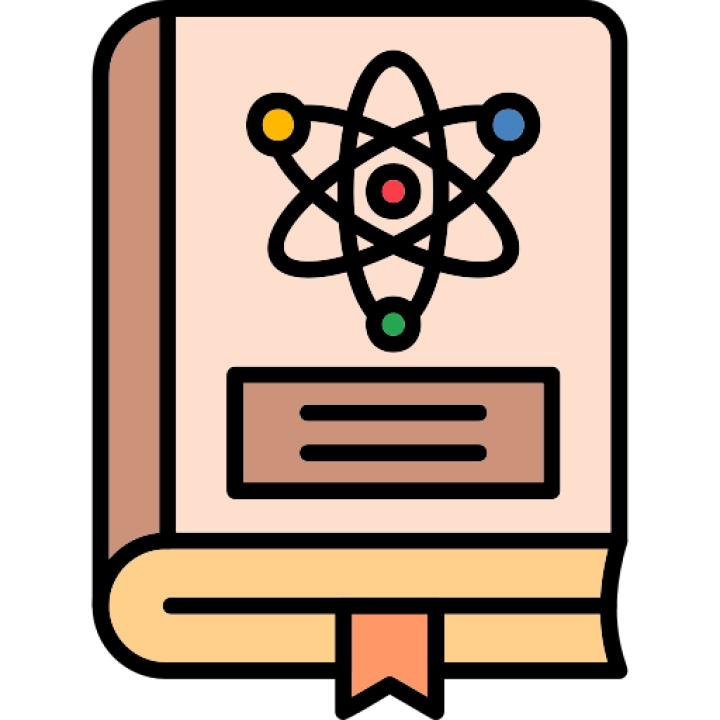Faculty: Arts and Sciences
The Basic Sciences major provides foundational understanding of core scientific disciplines, including biology, chemistry, physics, and mathematics. Students acquire skills in scientific inquiry, experimental design, data analysis, and critical thinking, preparing them for careers in research, education, healthcare, and related fields, or for further studies in specialized scientific disciplines.
Learning Objectives:
- Understand the principles of biology, chemistry, physics, and mathematics.
- Develop skills in scientific inquiry and experimental design.
- Learn data analysis and interpretation techniques.
- Explore the interdisciplinary nature of science and its applications.
- Develop critical thinking, problem-solving, and analytical skills.
- Gain practical experience through lab work and research projects.
General Curriculum Outline:
- Introduction to Basic Sciences - Overview of fundamental principles and history of basic sciences.
- Biology - Fundamentals of cell biology, genetics, evolution, and ecology.
- Chemistry - Principles of general, organic, and biochemistry.
- Physics - Fundamentals of classical mechanics, electromagnetism, thermodynamics, and quantum mechanics.
- Mathematics - Principles of calculus, linear algebra, statistics, and differential equations.
- Scientific Inquiry and Experimental Design - Techniques in designing and conducting scientific experiments.
- Data Analysis and Interpretation - Methods for analyzing and interpreting scientific data.
- Interdisciplinary Sciences - Exploring the interdisciplinary nature of science and its applications.
- Laboratory Techniques - Principles of laboratory safety, equipment use, and experimental procedures.
- Research Methods in Sciences - Techniques for conducting and evaluating scientific research.
- Ethics in Sciences - Exploring ethical considerations and professional standards in scientific research.
- Capstone Project - A comprehensive project that applies basic science skills such as conducting a research study, designing an experiment, or analyzing scientific data.
Assessment Methods:
- Analysis of Basic Science Principles
- Biology Projects
- Chemistry Projects
- Physics Projects
- Mathematics Projects
- Scientific Inquiry and Experimental Design Projects
- Data Analysis and Interpretation Projects
- Interdisciplinary Science Projects
- Laboratory Technique Projects
- Research Methods Projects
- Ethics in Science Projects
- Capstone Projects and Presentations
Recommended Textbooks:
- "Introduction to Basic Sciences"
- "Biology"
- "Chemistry"
- "Physics"
- "Mathematics"
- "Scientific Inquiry and Experimental Design"
- "Data Analysis and Interpretation"
- "Interdisciplinary Sciences"
- "Laboratory Techniques"
- "Research Methods in Sciences"
- "Ethics in Sciences"
Prerequisites:
Basic knowledge of mathematics and an interest in core sciences.
Duration:
The study period typically spans 4 years to earn a Bachelor's degree in Basic Sciences.
Certification:
Graduates may obtain certifications such as:
- Certified Laboratory Scientist (CLS)
- Certified Research Administrator (CRA)
- Certificates in specific scientific programs and technologies
Target Audience:
Aspiring scientists, researchers, educators, healthcare professionals, and individuals seeking careers in research institutes, educational institutions, healthcare facilities, and related fields, or planning to pursue continued studies in specialized scientific disciplines.
This major provides students with a strong foundation in core sciences, supporting careers in various roles within research institutes, educational institutions, and healthcare facilities and related fields. The program offers comprehensive education in biology, chemistry, physics, mathematics, scientific inquiry, data analysis, interdisciplinary sciences, laboratory techniques, research methods, and ethics, preparing students for successful careers in the sciences or further studies in specialized scientific disciplines.

